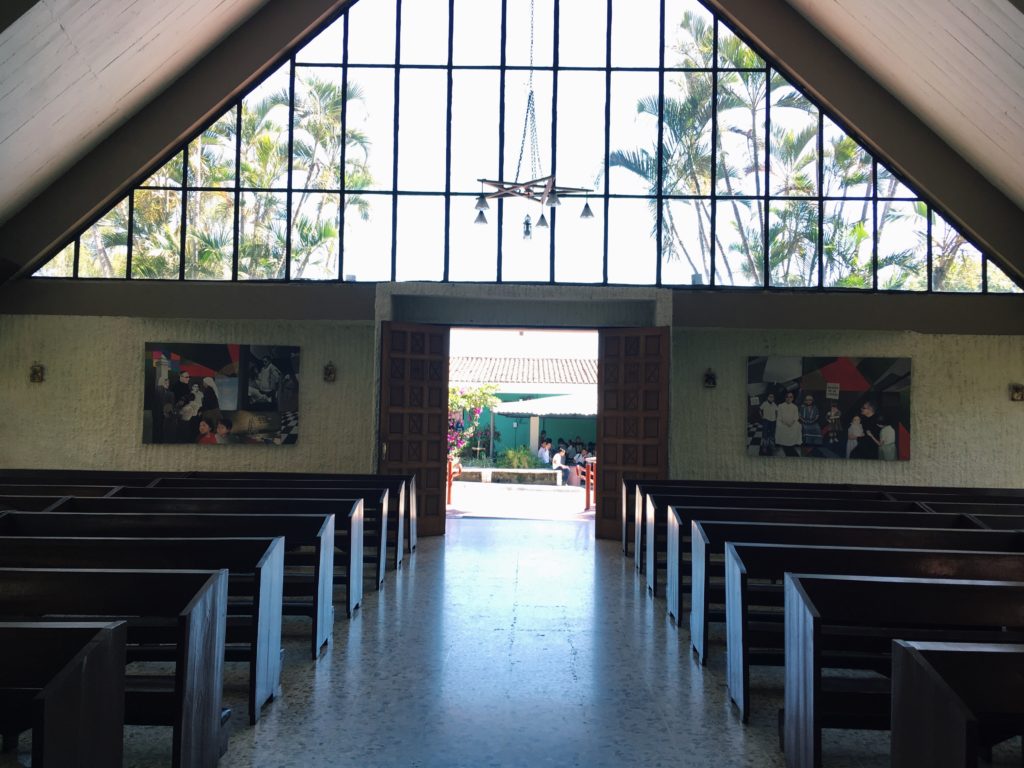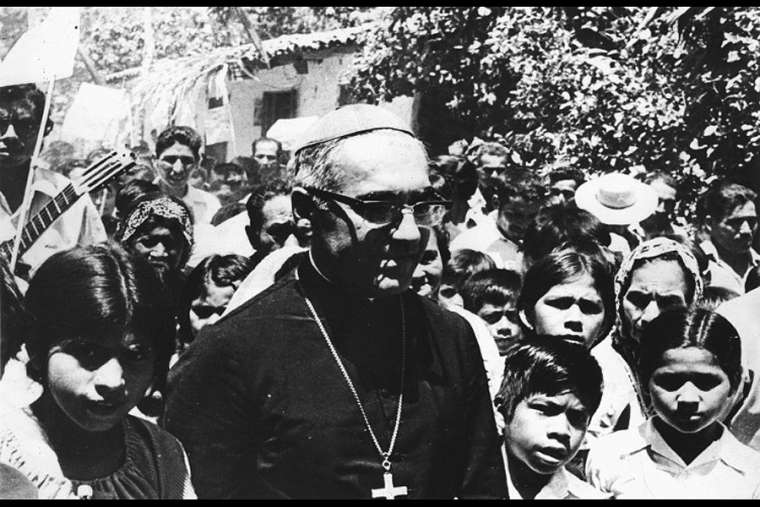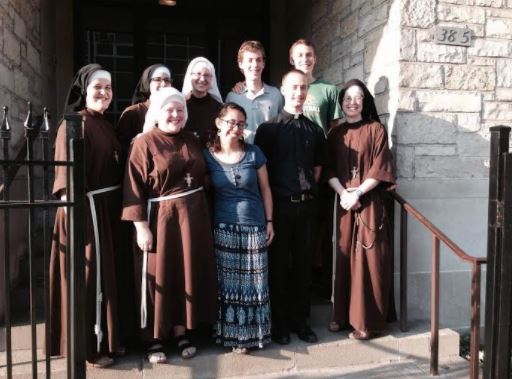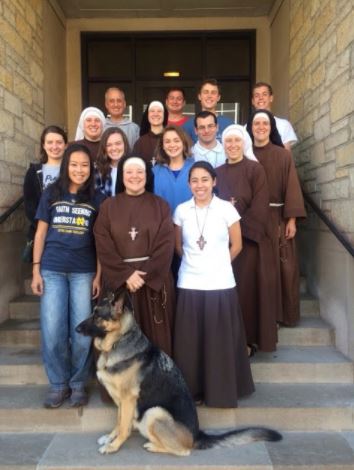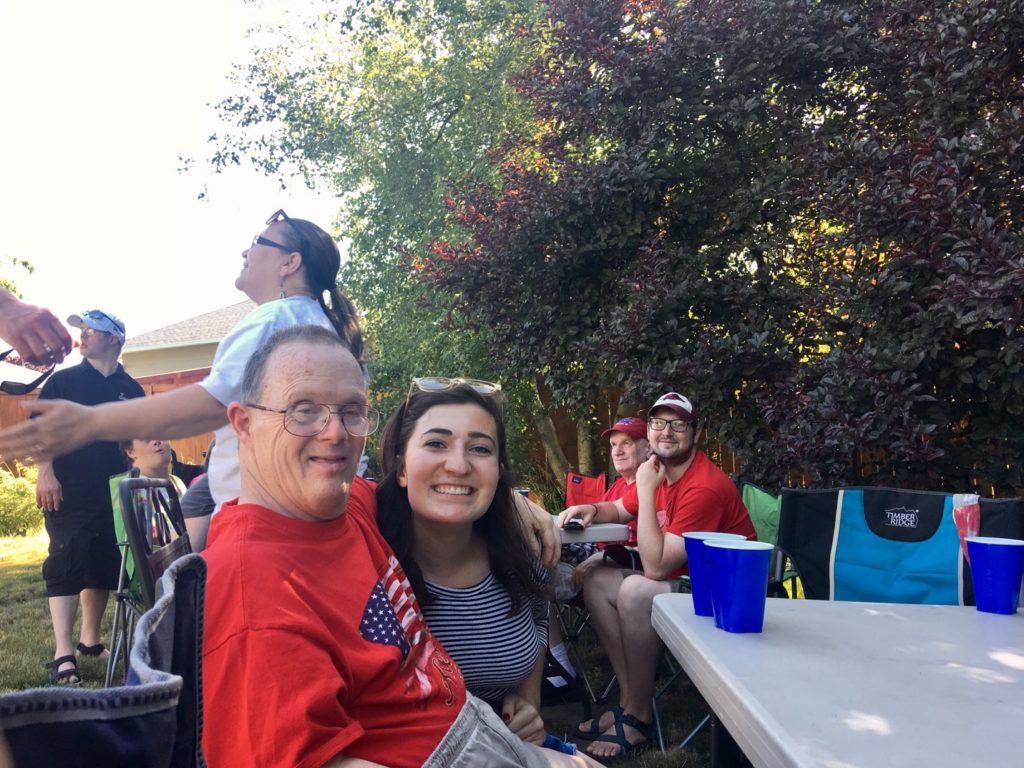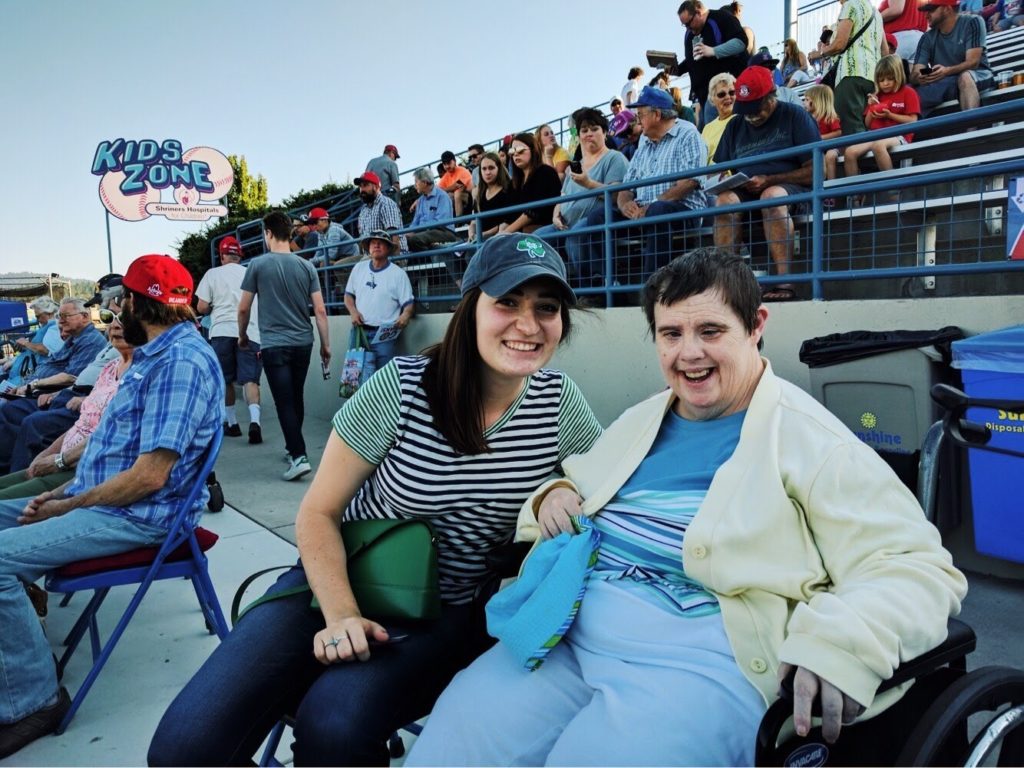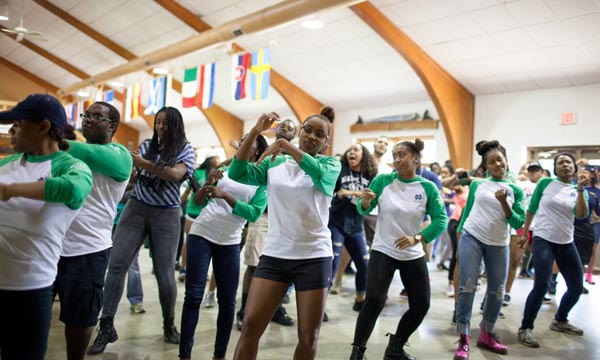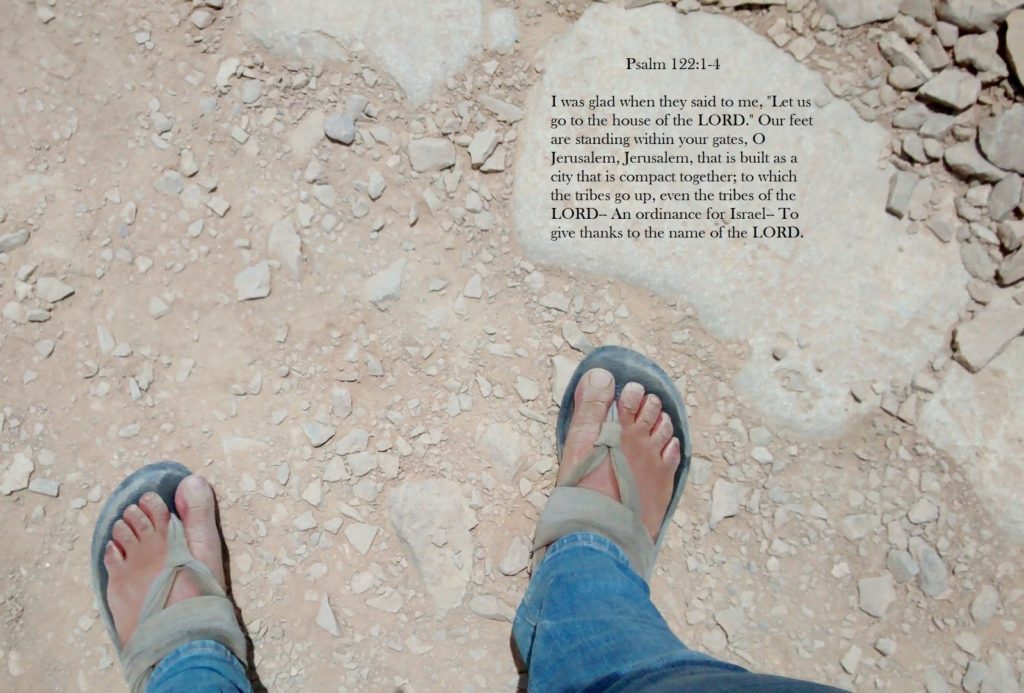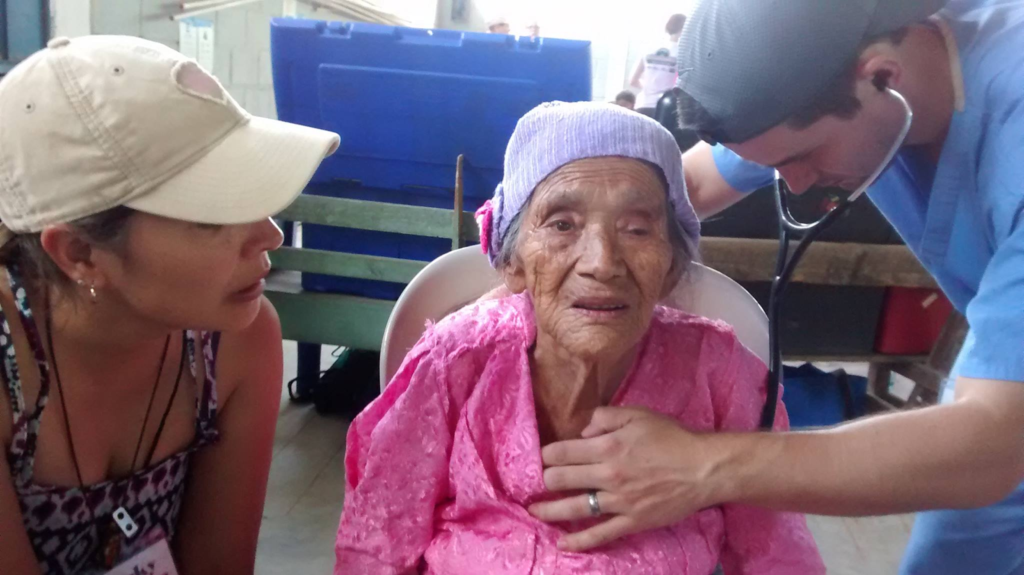Jenna Morgan, Senior Anchor Intern – Retreats and Pilgrimages
André House will always hold a special place in my heart.
For the past two fall breaks I’ve had the privilege to travel with a group of Notre Dame students to the André House of Hospitality in Phoenix, Arizona on a Seminage (a collaboration between the Center for Social Concerns and Campus Ministry). Last year was the first time I had ever been to André House, let alone Arizona. It was a whirlwind of a time to say the least. The experience and the people I met launched me on a yearlong path of heightened awareness, growth, and continued self-discovery.
After my first visit to André House, I knew immediately that if I was ever in Phoenix again, I wanted to return and volunteer for a few days. However, I never expected to have the opportunity to return so soon. That was until I accepted a position as a Senior Anchor Intern in Campus Ministry for Retreats and Pilgrimages and was asked if I would help co-lead the Hands of St. André Seminage over fall break 2018. After much prayer and reflection, I accepted the role not fully understanding all that my “yes” would entail, but feeling nudged in that direction none the less.
The series of meetings leading up to the immersion were a blur of Friday planning meetings with my co-leader and long Monday nights of class and leadership formation. On paper I was prepared to help lead this Seminage, but I can honestly say that between the businesses of academics, events for Campus Ministry, planning for my post-grad future, and simply living the life of a senior at Notre Dame, I didn’t fully comprehend that I was going back to André House until it was 4 am at the O’Hare airport waiting for our flight to Phoenix. As I sat at the airport I reflected back to a year ago, another early morning start, and to that experience, the people, the encounters, the moments, and the feelings. I was caught in this sort of tension between wanting the experience to feel familiar, to recognize faces around me, and at the same time realizing that if it was too similar and I saw too many of the same faces from last year, then sadly in the intervening year nothing would have changed in the lives of the homeless and impoverished guests that rely on the services of André House.
To give a bit of background for those unfamiliar with André House, the André House of Hospitality in Phoenix, Arizona began in late 1984 when two Holy Cross priests from Notre Dame rented a house in a working-class neighborhood in Phoenix with the mission to respond to the basic needs of the poor and homeless, while encouraging others to do the same. On November 29, 1984, the first guest was welcomed. This began a long tenure of hospitality inspired by the life of St. André Bessette and the traditions of the Congregation of Holy Cross. This mission of André House has continued to be supported by many Holy Cross religious and countless volunteers over the years. Today, André House serves an average of 600 plates of food per night, six nights a week, as well as providing other needed services such as a free clothing closet, laundry, showers, an office with a phone, basic medication and first-aid, lockers, legal services, blanket distribution, restrooms, access to clean water, and a welcoming porter by the gate.
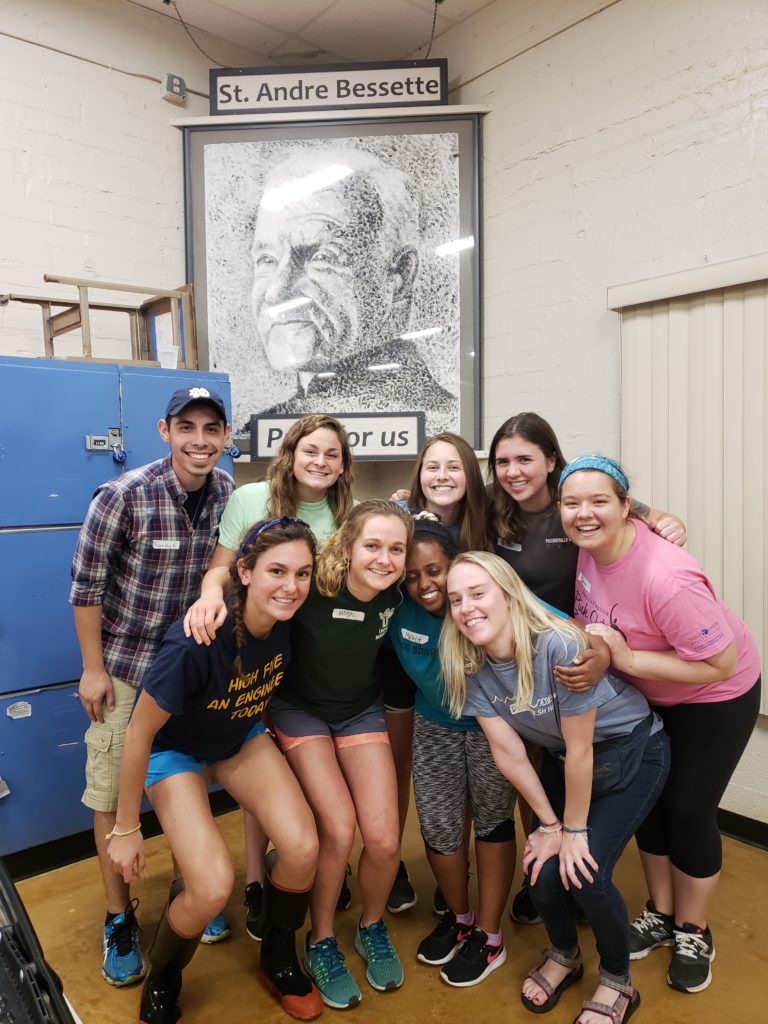
Upon arriving in Phoenix with all my fatigue, stress, and worries, I wondered what the week ahead would look like for us. As soon as we pulled up to the gate to begin our week at André House, all those thoughts dropped away and I was fully immersed back into the André House community, that crazy, caring, blessed, sometimes dysfunctional family. In a way it was like going home; a place that was familiar but still different then the last time I had left it. A place where so many elements of life are beautifully and messily juxtaposed against one another.
A few significant moments from this year’s trip particularly stand out to me:
My first shift this year was in the office with a member from our group and a member of the core staff. I remembered being in the office last year and the fast-paced, request filling agenda. This time was no different. Some requests for hygiene kits or aspirin were easily fulfilled, others were more of a challenge. The office is a balancing act between upholding the established rules and procedure, and determining when they can be stretched or broken to meet the varied needs of the guests. A special moment was when a guest asked for a rosary and I was able to go downstairs into the basement and find one for her. Her gratitude was sincere.
There was the encounter while portering by the gate (a legacy of St. André Bessette’s hospitality) when I was walking amongst the guests on the rows of benches. I sat down across from one guy with a Syracuse hat on and started talking to him, asking if he was also from upstate New York. Our conversation was slow, fragmented and waning when another guy further down the bench woke up and started talking. He shared that it was his first day at André House, he had just been released from the hospital, and his mother had recently died. This was a lot to comprehend in the span of a few short sentences. Immediately he was seeking a blanket for the evening when the temperature would drop substantially outside, but his need was much greater than that and less tangible. He came back a few minutes later and straddled the bench right next to me. He repeated his story, this time with a few additional details. At what seemed like the end of our conversation, I told him that I would be praying for him. At that, he could not resist embracing me in a hug, and then another hug, and then finally another hug while lightly kissing my cheek and gently patting my back which was then followed by the question of if I had a boyfriend. In that moment I realized multiple things; the importance of extending genuine prayers to others, the need to be truly listened to, the need for human connection and embrace, but also my own vulnerability, particularly as a young woman. Without wanting to cause him any additional suffering, but also recognizing my vulnerability in the situation, I gently extracted myself with a quick self-protecting “yes” and a need to go help inside. Looking back on this encounter, I wonder if this was not the face of Christ present to me in that moment, an opportunity to encounter and embrace another broken individual in their time of need, despite my own hesitations and misgivings.
André House is a huge family sharing in life together. During lunch one day we celebrated the 50th birthday of the hardworking maintenance worker with a special lunch and lots of cake. As a community, we mourned the loss of a guest’s beloved dog and comforted her with empathy and a framed picture of them together. Signs of hope were present with the “weddings” of two couples; one that began the day before with the most unique version of Say Yes to the Dress you could probably ever see in the basement clothing racks. We had the opportunity to experience André House as a guest by grabbing a meal ticket to go through the service line for dinner, sit in the dining room, and talking with the guests. André House truly blurs the line between those serving and those being served in the most beautiful ways that lead to solidarity, empathy, and community.
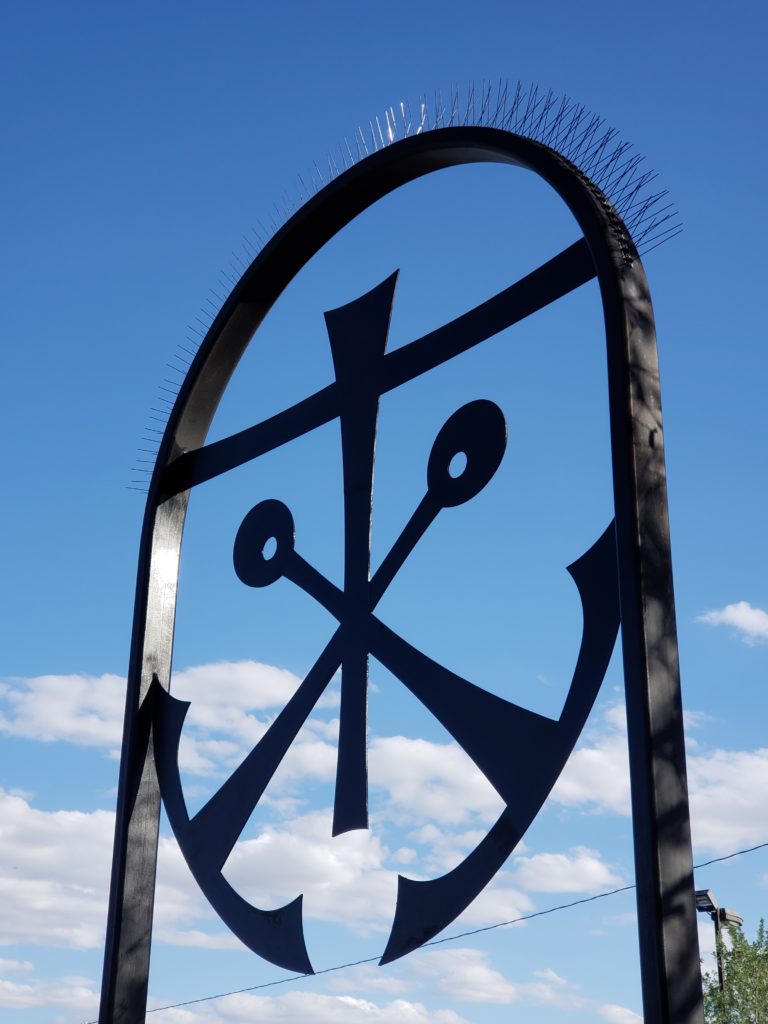
The way Mass is celebrated each day at André House is unique. It is not in a fancy basilica or chapel, but directly in our place of service and community; the St. Francis dining room with all the staff gathered together sitting around a series of circular tables pushed together. Last year and this year again, this celebration of the Mass struck me as the closest I will ever come to being at the Last Supper with all the faithful disciples gathered around the table for the consecration of the bread and wine. For me, one of the most beautiful moments in this celebration of the Mass is the passing of the Body and Blood around the table, each person receiving from and giving to the other. On Wednesday my idea of what Mass looks like expanded even further when we brought the Mass outside to the guests on the rows of benches. This isn’t the peaceful, quiet, reverent Masses we might be used to at the Basilica on campus, no this is truly sharing the Gospel with the masses, hearing real, messy petitions offered up for prayer, smelling the stench of who knows what, and placing the Body of Christ into dirty, weathered hands while looking into the eyes of strangers, who aren’t really strangers, but brothers and sisters in Christ. This might not be what we initially think of when we think of the Mass, but it is beautiful in its own way none the less, and might actually be more related to our everyday lives then we may initially believe or want to admit.
In the end, André House is a lot about listening to the stories of others, calling each other by name, and cleaning away the dirt, both literal and metaphorical, to discover the glimpses of grace sparkling throughout our lives. My André House experience was a beautiful reminder of the joys and sorrows that accompany the sometimes crazy life I lead, but above all, it was an important reminder of how truly blessed I am, as I keep all those who call André House home in my prayers.
St. André Bessette, Pray for Us!
If you are interested in learning more about André House, or how you can get involved, please visit andrehouse.org for more information.
